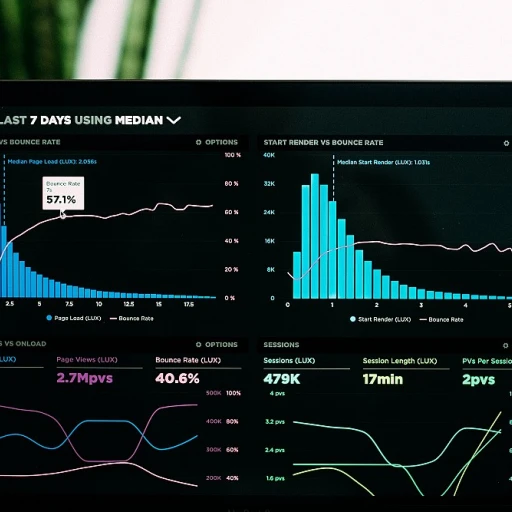Introduction to Leveraged Buyouts
Introducing the Concept of Leveraged Buyouts
Leveraged Buyouts, commonly known as LBOs, form a strategic approach in investment banking. At its core, an LBO is a financial transaction where a company is purchased using a combination of debt and equity. The unique facet of this model lies in its heavy reliance on borrowing (debt) which often makes up a significant portion of the purchase price. In an LBO, private equity firms usually target a company by assessing its potential to generate steady cash flows. This ensures that the debt taken to acquire the company can be serviced without strain. The equity firm generally aims for a high rate of return on their investment through careful financial structuring and strategic business improvements in the target company.The Role of Debt and Equity in LBOs
Through the LBO model, the balance sheet of the acquired company often shows increased debt, requiring efficient management of operating cash flows to clear interest rates and high-yield obligations. The use of debt in this financial setup serves as a lever to enhance the equity returns, with the eventual goal of achieving a profitable exit multiple. The effective management of debt and equity is pivotal in walking through a successful buyout. A core aspect of LBOs is the ability to execute a step-by-step financial restructuring to optimize returns. Investment banking skills and strategies are crucial for equity firms in identifying and executing these buyouts.Understanding the Financial Landscape
Embarking on an LBO not only requires an adept understanding of the financial mechanics but also a vision for creating growth post-acquisition. The private equity landscape is intricately linked with how efficiently these deals are structured, ensuring an attractive ebitda growth trajectory. The purchase of a target company involves calculating the exit equity and free cash flow potentials, determining their potential to generate appealing returns through enhanced operational efficiencies and strategic undertakings. For those interested in learning more about the complexities of financial transactions like term loans, navigating the concepts presented in Ingenovis Health Term Loan can be an insightful journey into understanding the broader financial landscape connected to LBOs. The journey into LBOs showcases the stature of financial ingenuity and strategic foresight, serving as a pivotal exploration for influencers keen on understanding corporate finance dynamics.The Mechanics of an LBO
Understanding the Financial Steps Involved
Leveraged buyouts (LBOs) involve a series of complex financial steps designed to facilitate the purchase of a company, often reliant on a combination of debt and equity. In these transactions, the acquired company's future cash flows are crucial in structuring the deal and ensuring long-term viability.- Debt and Equity Combination: The primary financial model in an LBO relies on leveraging a mix of debt and equity. Typically, a large portion of the purchase price is financed through borrowing, while the remaining portion is covered by private equity investment.
- Debt Instruments: LBOs often utilize high-yield bonds or loans to raise necessary funds. The interest rates on these loans can greatly impact the company's financial health and are carefully evaluated during the decision-making process.
The Role of Private Equity Firms
Equity firms play a pivotal role in executing LBOs, capitalizing on their expertise in identifying lucrative investment opportunities. These firms typically look for businesses with strong cash flows and robust growth potential.- Target Company Evaluation: An equity firm's due diligence process involves assessing a target company's financials, market position, and management capabilities to ensure a promising rate of return.
- Exit Strategies: Once the investment matures, equity firms usually aim to implement an exit strategy. This could involve selling the company at a higher exit multiple, taking it public, or selling it to another private equity firm.
Social Media Influence in LBO Activity
In today's environment, the intersection of private investment and social media capital is becoming increasingly significant. Companies that have a strong social media presence or potential to create engagement can become attractive targets for leveraged buyouts, as these platforms often drive value and growth. To learn more about mastering this art and how influence points play a crucial role, check our in-depth guide on mastering social media influence. This resource offers an insightful exploration into how social media capital can be a transformative factor in private investment decisions.LBOs in the Context of Social Media
The Intersection of LBOs and Social Media Influence
The world of leveraged buyouts (LBOs) is complex, involving intricate financial structures and strategic investments. However, its impact is increasingly evident in the realm of social media influence, where companies leverage LBO tactics to amplify their digital presence and market power. LBOs offer a unique model that can be translated into strategies for social media houses and influencers. By utilizing these principles, social media firms can optimize their cash flows and increase their market reach. Here's how they intertwine:- Targeting the Right Company: In an LBO environment, selecting the target company is crucial. Similarly, influencers and social media firms should focus on aligning with brands that match their ethos and audience interests. Leveraged buyouts prioritize investments that yield high returns — a concept that resonates with influencers aiming to enhance their brand collaborations.
- Strategic Use of Debt and Equity: LBOs are financed through a combination of debt and equity, providing a well-balanced financial approach. Influencers and social media platforms can adopt this strategy by using collaborations (equity) and promotional efforts (debt) to expand their influence and reach. This financial model can bolster their ability to engage audiences effectively.
- Optimizing for High Returns: The ultimate goal of an LBO is to exit with an optimal rate of return, often determined by the exit multiple. For influencers, setting strategic benchmarks and exit strategies can maximize their market returns and influence potential, much like an equity firm managing the purchase price and free cash flow.
Challenges and Risks of LBOs
Identifying Potential Pitfalls in LBO Transactions
In the world of leveraged buyouts (LBOs), there are several challenges and risks that must be considered, especially when large amounts of debt are involved. A hallmark of LBO transactions is the reliance on borrowed funds to purchase a company, using the company’s assets as collateral. This can introduce a host of financial complexities.- High Debt Levels: One of the main risks in an LBO is the substantial debt-equity ratio. With high interest, debt can overwhelm a company’s cash flow, making it difficult to meet financial obligations, which may lead to default and financial instability.
- Interest Rate Fluctuations: LBOs are particularly sensitive to changes in interest rates. Rising interest rates increase debt servicing costs, squeezing cash flows and potentially diminishing returns on investment.
- Valuation Risks: An inaccurate estimation of the purchase price or overvaluation of the target company using metrics like EBITDA can distort future exit multiples and projected financial returns for equity firms.
- Execution Risks: The success of an LBO heavily relies on strategic execution. Failure to effectively manage operations and achieve anticipated efficiencies can negatively impact the investment model.
- Market Volatility: External market conditions can shift rapidly. Economic downturns or market disruptions may impair company performance, challenging the ability of private equity firms to secure favorable exits.
- Regulatory and Operational Challenges: Navigating the regulatory landscape and synchronizing the integration process post-acquisition pose significant operational challenges.
Opportunities for Influencers
Unlocking Opportunities for Influencers
In the dynamic world of social media, influencers are uniquely positioned to benefit from the intricacies of leveraged buyouts (LBOs). By understanding the mechanics of an LBO, influencers can explore new avenues for growth and investment. Here’s how:
- Investment Potential: Influencers with substantial earnings and savings can consider investing in LBOs. This involves purchasing a target company using a combination of debt and equity, which can potentially yield high returns if the company performs well post-acquisition.
- Strategic Partnerships: Collaborating with private equity firms can open doors for influencers. These firms often seek partnerships with individuals who have a strong social media presence to enhance brand visibility and market reach.
- Brand Acquisition: Influencers can leverage their personal brand to acquire companies that align with their niche. This strategic move can diversify their income streams and increase their influence in the market.
- Exit Strategies: Understanding exit multiples and strategies can help influencers plan their financial future. By knowing when and how to exit an investment, influencers can maximize their returns and reinvest in new opportunities.
- Financial Literacy: Engaging with LBOs requires a solid understanding of financial concepts such as EBITDA, cash flow, and interest rates. This knowledge empowers influencers to make informed decisions and negotiate better terms.
By embracing these opportunities, influencers can not only enhance their financial portfolio but also solidify their position as savvy entrepreneurs in the digital landscape.
Future Trends in LBOs and Social Media
Emerging Trends in Leveraged Buyouts and Social Media
The landscape of leveraged buyouts (LBOs) is continually evolving, with social media playing an increasingly pivotal role. As we look to the future, several trends are emerging that influencers and equity firms should keep an eye on.
Integration of Social Media Metrics
Social media metrics are becoming a valuable asset in the LBO model. Companies are now assessing the social media capital of a target company as part of their due diligence. This includes analyzing the brand's online presence, engagement rates, and influencer partnerships. These metrics can significantly impact the purchase price and the potential exit multiple, as a strong social media strategy can enhance a company's market position and cash flow.
Increased Role of Private Equity Firms
Private equity firms are increasingly interested in companies with robust social media strategies. The ability to leverage these platforms for marketing and customer engagement can lead to higher returns on investment. As interest rates fluctuate, the ability to generate free cash flows through innovative social media campaigns becomes even more critical.
Technological Advancements and Data Analytics
Advancements in technology and data analytics are transforming how LBOs are conducted. By using sophisticated tools to analyze financial data and social media trends, firms can better predict future cash flows and optimize their exit strategies. This approach allows for a more precise walk through of the financial model, ensuring that the debt and equity balance is maintained effectively.
Focus on Sustainable and Ethical Investments
There's a growing emphasis on sustainability and ethical investments within the LBO space. Influencers and companies that prioritize ethical practices and sustainability in their social media campaigns are likely to attract more investment. This shift reflects a broader trend towards responsible investing, which is becoming a key factor in the decision-making process for equity firms.
As the dynamics of LBOs continue to shift, staying informed about these trends is crucial for influencers and companies looking to maximize their impact and financial returns in the digital age.









